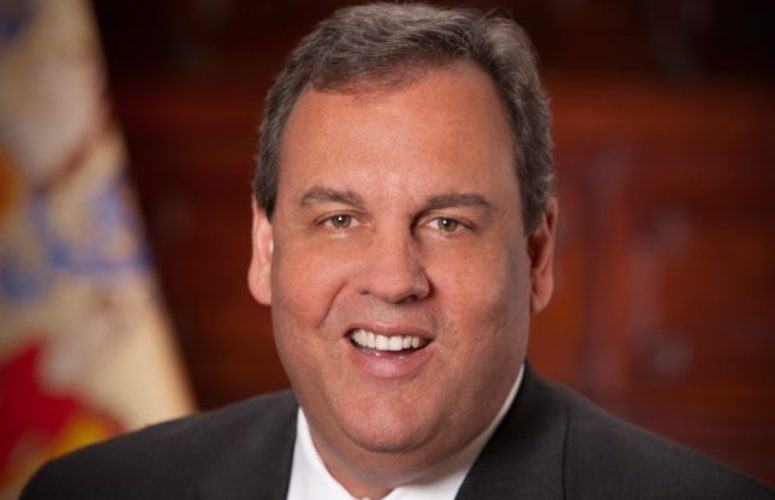
Governor Chris Christie’s Fiscal Year 2016 Budget Address As Prepared for Delivery
On Feb 24, 2015GOVERNOR CHRIS CHRISTIE:
Senate President Sweeney, Speaker Prieto, Lt. Governor Guadagno, members of the Legislature, friends, fellow New Jerseyans:
I come before you today to present my budget for the Fiscal Year 2016. For the sixth time in a row, the budget I present is balanced. For the sixth time, it includes no new taxes on the people of New Jersey.
Spending is again held in line, at $33.8 billion, $2.3 billion less in discretionary spending than in Fiscal Year 2008. I am not talking about spending adjusted for inflation – I am saying that in nominal dollars, New Jersey has not increased spending over where we were in Fiscal Year 2008.
That is because when we arrived here, spending had risen 58 percent in the previous eight years. Taxes were increased 115 times. Jobs and people were leaving the state. Unemployment was too high. We had to change direction. And we got it done.
The reason was simple: my goal, then and now, was to make New Jersey a home for an opportunity-filled economy. To attract private sector jobs to the state. To protect our hard-working taxpayers. To provide good paying careers for our children.
We are making record investments in aid to our schools, and this year again I propose to do that for a fifth straight year, with an increase over last year to bring total school aid to over $12.7 billion.
For the last four years, we have worked to support the priority of higher education, and this budget again does that, with over $2.2 billion for higher education, including a $20 million increase in Tuition Assistance Grants.
In addition, we have been able in this budget to fund key new initiatives — like the single point of entry for addiction services that I spoke about in my State of the State message; the expansion of drug courts so we can provide non-violent offenders with mandatory treatment instead of incarceration; and Opportunity Scholarships to give students in failing school districts a choice.
And we continue in this budget to support key priorities like municipal aid and property tax relief at current levels.
But we should make no mistake.
New Jersey, like the majority of states in America, and like our Federal government, faces significant fiscal challenges. I am here today to speak the truth and stand up for our hard working taxpayers.
For this coming year, we project that revenues will increase by 3.8 percent, in line with our recent experience. This means an increase of a little over a billion dollars a year in state revenues with no new taxes.
And yet, all of that increase in revenues is eaten up by growth in three areas: pension, health benefits and debt service.
And the biggest of those growing obligations which, limits our ability to invest in other priorities, is the growth in the state’s payment into the pension system.
Let me remind you, we are not alone in facing this dilemma. In state after state, pensions, health care costs, and debt service are crushing the ability of states to finance schools, colleges, new technology and new infrastructure. I will not willingly sit by and let this continue. New Jersey deserves solutions to these problems.
The budget I put before you today would have New Jersey taxpayers make a $1.3 billion dollar payment to the pension system for fiscal year 2016. This is the largest single pension payment that has ever been made in New Jersey history.
And that means that during this Administration, we will have contributed more in total to the pension system than any other Administration in New Jersey history. By nearly double. That’s right. Since 2010, including the commitment we are making today, we will have contributed to the pension system nearly $4.2 billion.
Let me put this in perspective for you. From 1994 – 2009, the 15 years before our arrival to Trenton, the total contribution to the pension system was $3.4 billion. In my five years, we have beat that by nearly $800 million. Those are the facts.
An eagerness to please and to say what people wanted to hear in the past has led to high levels of state employee benefits without the willingness to actually fund those benefit levels.
Now, years later, these false promises and a failure to pay into an ever-growing system have put us in a position where the system is underfunded, and the payments necessary to catch up will destroy our ability to invest in our children’s future.
If we do not reform, next year we would be asked to spend nearly $8 billion on pension and health benefits. Health costs alone consume nearly 10 percent of the budget.
If we continue to do nothing, spending on pension and health benefits will make up 23 percent of New Jersey’s budget.
And in the years ahead, that percentage will grow even larger, making it impossible for the state to do much else to invest in a better New Jersey.
This is not the path forward I want for our state.
I want to improve learning and provide the tools for reform of failing school districts. I want to provide more affordable college tuition and invest in research at our state colleges and universities. I want to fund successful drug and mental health treatment that will save lives. And I want to lighten the tax burden on our hardworking taxpayers who work day in and day out and are frustrated that they can’t get ahead.
But we can’t pursue these priorities – today or tomorrow – if we don’t tackle the problem of pension and health benefits.
That is the problem New Jersey faces today. Imagine if we had not put into place our 2011 pension and benefit reforms. The media continue to try to convince the public that making smaller than planned pension payments has eliminated the effectiveness of these reforms. Nothing could be farther from the truth. The increased employee contributions, the ending of COLAs, the increased retirement age, along with our record-setting payments, has this system healthier than when we found it 5 years ago. That does not mean our work is finished. But without these reforms, the system itself would already be close to broke.
So I did not come here today just to identify the problem, shrug my shoulders and return to business as usual.
There are solutions and my work in this regard began months ago.
Last year, I appointed an independent nonpartisan New Jersey Pension and Health Benefits Study Commission to come up with creative recommendations for making the system reliable for the beneficiaries but manageable for the state.
The members of this Commission have been working diligently and collaboratively over the last several months, working on new ideas and meeting and consulting closely with beneficiary groups to forge a proposal that reflects their views and gives them a stake.
The Commission understood its charge to think outside the box, and to be dynamic in its approach to solving this problem.
I want to thank Thomas Healey, Ray Chambers and the rest of the members of the Commission for leading this effort and for bringing together different points of view, an array of thinkers and multiple stakeholders. The result is innovative and real. It is a national model.
In addition to proposing reforms, I gave the Commission an even more difficult job. I authorized them to begin direct negotiations, on my behalf, with the New Jersey Education Association, to change this broken system in order to bring security to their members and fairness to New Jersey’s hardworking taxpayers.
For the last five months, the Commission has worked with the NJEA to find common ground.
What have been the results of these negotiations?
I am pleased to announce today that the Commission, with my support, has reached an unprecedented accord with the NJEA on a “Roadmap for Reform” to solve our long-term problems with the pension and health benefit systems.
While this Roadmap is with the NJEA today, I hope other unions will follow suit tomorrow.
The recommendations by the Commission that make up the Roadmap are far-reaching and groundbreaking. At their core they seek to bring fairness to a system that has long been unjust and create parity between public and private sector employees.
For example, the State has been paying for the pension costs and retiree health care costs for local employees who have never worked a day in their careers for the State. In addition, the level of health care benefits enjoyed by public employees and retirees has been significantly more attractive than what the average worker in the private sector receives.
Does that sound fair to you? The Commission has proposed ways to fix this.
The Roadmap calls for the existing pension plan to be frozen and to be replaced by a new plan. Both the existing plan and the new plan would be transferred to a Trust overseen by the NJEA.
But the Roadmap also requires the State to make periodic contributions each fiscal year to the Trust in order to pay off the unfunded liability of the existing plan over a period of 40 years. To ensure the State meets this obligation and the payment is enforced, a Constitutional Amendment would be voted on this November. The payment amounts and percentages of annual increases are subject to further discussion.
The Roadmap also recognizes that the State must achieve sufficient savings in health care costs if we are going to be able to pay off the unfunded pension liability and to make required contributions to the new plan. It is expected that the unions will work with representatives from the State and from the Commission to attain the required savings in health care costs from a variety of sources – including embracing innovative plan-design initiatives, wellness programs and other ways of providing incentives to participants to stay healthy.
If those savings are not identified by June 2015, the Roadmap provides that the State Legislature will not be asked to put a Constitutional Amendment on the November 2015 ballot.
Imagine, after years of disagreement and, at times, acrimony – we have come together on a negotiated and signed Roadmap to fix the largest hurdle to New Jersey’s long-term fiscal stability. After months of hard work behind the scenes, and with months more to come, we are on the verge of proving to our citizens once again that we can make government work for them – the people who pay the bills.
Today, I am embracing the Roadmap and also endorsing the entirety of the Commission’s proposed plan, a series of reform proposals that will fundamentally change the pension and benefit systems so that there is fairness.
If we enact these reforms, and at the same time guarantee the certainty of a pension funding payment with a Constitutional Amendment, we are sending a clear set of signals:
– We are signaling to beneficiaries that the state can be counted on to make its payment;
– We are signaling to new beneficiaries that they will have control over their own retirement plans;
– We are signaling to existing beneficiary groups their union will control their own investments and their own destiny;
– And we are signaling to those evaluating the state’s financial condition that the state’s obligation to the system is a known number that is manageable on a long-term basis.
The numbers do not lie and we don’t need any court to tell us we have a serious problem. I have stood behind this podium for five years speaking candidly about this problem. We acted in 2011 to acknowledge and begin to repair this serious problem. We now have a bipartisan reform plan which can, once and for all, fix this problem. No one branch of government can wish or order this problem away. We must do it together.
Together, I know we can get this done. We have proven time and again that even when we look like we’re not going to make it work and that politics and partisan interests have won out, we flip the script.
We do it differently. We get it done.
I am committed to working with each and every one of you in good faith to make a promise to the people of this state that we will not push this off…we will not leave it for another day… for another year… for another generation.
We will tackle this problem now and we will solve it. That is what real leadership produces for our people.
Real leadership produced the 2011 reforms which took our system off life support. That was a success.
Those reforms were in the best interest of all New Jerseyans when we passed them. The steps we’ve taken since then have been reasonable, necessary and in the interests of our citizens as well.
Adopting the reform plan roadmap agreed to by the Commission and the NJEA by June will return the system to health.
The work that has already taken place lays the groundwork for adopting this creative compromise solution.
Inaction is unacceptable. Repeating the mistakes of the past would be irresponsible.
Let me be very clear about that because there are politicians, some who may be in this very room, who will tell you that we don’t need further pension and health benefit reform. They will tell you that this will just go away if we ignore it.
They will tell you that this is solvable if we just raise taxes. But we cannot tax our way out of this problem. To do so would require increasing the sales tax to 10 percent or increasing the income tax by 29 percent just to close the pension-funding gap.
Is there really anyone in this room who is willing to foist a 10 percent sales tax on our taxpayers? Anyone who thinks our citizens deserve and can afford a 29 percent income tax increase on all our hardworking taxpayers? I do not and will not.
They will tell you that it won’t impact you, and that it’s going to be somebody else’s problem. That someone else will pay. You know that is not true.
We need to act now because the longer we resist change…the longer we resist imagining a different future…the longer we push off the inevitable because it’s easier to let it be someone else’s problem, the harder it will be to solve the problem, and the greater the impact will be on every other New Jersey priority, each year.
Sometimes it doesn’t seem immediately apparent, but this problem is eating us away little by little.
Every increase in the dollars devoted to pension and health benefits is a decrease in dollars invested in other priorities, creating a series of missed opportunities to build a better New Jersey.
We will miss the opportunity to give our young children the chance to be successful with a quality education no matter where they live…
We miss the opportunity to give a second chance to those battling drug addiction or reentering society from prison to become valued and contributing members of the community…
We will miss the opportunity to boost take home pay for working class taxpayers by providing tax relief and new jobs which lead to fulfilling careers.
This is the cost of inaction. This is the cost of doing nothing. This is the cost of pushing this off to somebody else. There is no one else. There is no one else but us.
And that is why I am here today to ask you to do what may be politically difficult, but what is morally the right thing to do.
This is the type of leadership our state requires. Coming together. Thinking differently. Fighting for all the people. Addressing the long-term. This is how we get things done.
I will never stop working to fix the problems we have previously ignored. I will never stop telling the hard truths. I will never give up on New Jersey. That is why the people have sent me to this chair twice and we will not stop fighting for them until my last day as Governor.
Through our ability to bring people together who have not agreed in the past, we are setting a national trend.
By putting forward new solutions to age old problems, we are creating a national model. By signing this Roadmap with the teachers union, we are showing government can work for all our hardworking taxpayers.
That is my pledge to you today and if you are willing to stand up and work with me toward a better tomorrow, I will work with you.
Thank you, God bless you, and God bless the great State of New Jersey.
Related Articles:





